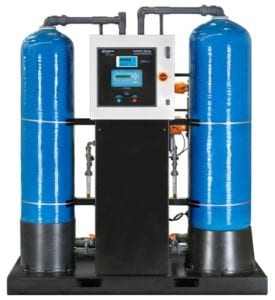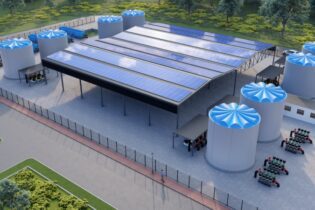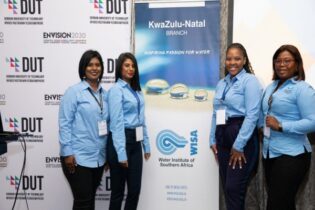Veolia Water Solutions & Technologies South Africa has removed a redundant demineralisation water treatment plant at a large power station in Gauteng, and successfully replaced it with a new de-ionisation plant using Rapide Strata 18+ twin-bed de-ionisation technology, complete with pre-treatment consisting of activated carbon filtration and an in-line filter polishing plant.
The new plant is designed to include a duty / standby system and will produce a total output of 36 m3 of demineralised water per hour. It will significantly improve the quantity and quality of the power station’s boiler feed water and will greatly reduce the risk of scaling by high-TDS (total dissolved solids) in the feed water. “In addition to offering drastically reduced downtime, this new plant design offers savings of up to 40% on running and effluent costs when compared to conventional ion exchange systems,” says Benny McCabe from Veolia Water. “Furthermore, the new plant’s effluent has a pH value of between 6 and 9, which is acceptable for disposal into most municipal drainage systems.”Veolia was the only supplier who tendered that was capable of executing the contract within the six-month delivery, installation and commissioning period. “The municipality’s financial services department awarded the contract to Veolia on May 23rd 2012, and commissioning occurred towards the end of October. We managed this contract well within the deadline period and within budget, even though, to accommodate the new plant within the existing civil structure, we had to completely re-design the water treatment plant room,” says McCabe.
Because conventional cation and anion de-ionisers usually stay offline for up to three and a half hours while they regenerate, Veolia opted for the Rapide Strata 18+, which uses short cycle ion (SCION) exchange technology which regenerates within 45 minutes. The contract is valued at R3.8 million.






